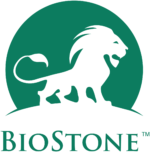Food Adulteration
Food adulteration occurs when food ingredients are substituted, mislabeled, or contaminated—intentionally or unintentionally—resulting in compromised safety, quality, or authenticity. These practices are often driven by economic motives, such as using lower-cost substitutes while declaring higher-value ingredients, especially in meat products, dairy, or processed foods.
Adulteration can be difficult to detect, particularly in processed foods where the original form of the ingredient is not visually recognizable. For this reason, rigorous testing is essential to ensure that food products are free from fraudulent or undeclared substances.
Religious and cultural dietary laws also demand strict verification of food contents. For example, halal and kosher certifications require confirmation that meat and other ingredients align with religious guidelines. Even trace contamination from prohibited animal species (such as pork or non-halal slaughtered meat) must be identified to maintain consumer trust.
Food adulteration is not limited to meat but extends to fish, milk, plant-based products, and processed foods. Each category presents unique challenges and requires validated, sensitive detection methods to maintain product integrity and regulatory compliance.
BioStone Scientific offers a comprehensive range of test kits for the fast, simple, and sensitive detection of food adulteration.
| Real-Time PCR & ELISA Test Kits |
| Brand Name | Test Name (sorted) | Cat # | Method |
| AsurPure™ | Bovine Origin Component | Bovine 2050-RT | PCR |
| AsurPure™ | Buffalo Origin Component | Buffalo 2050-RT | PCR |
| AsurPure™ | Canine Origin Component | Canine 2050-RT | PCR |
| AsurPure™ | Cattle Origin Component | Cattle 2050-RT | PCR |
| AsurPure™ | Chicken Origin Component | Chicken 2050-RT | PCR |
| AsurPure™ | Deer Origin Component | Deer 2050-RT | PCR |
| AsurPure™ | Duck Origin Component | Duck-Genome | Duck 2050-RT | PCR |
| AsurPure™ | Duck Origin Component | Duck-Co1 Gene | Duck-Co1 2050-RT | PCR |
| AsurPure™ | Duck Origin Component | Duck–Cytb Gene | Duck-Cytb 2050-RT | PCR |
| AsurPure™ | Feline Origin Component | Feline 2050-RT | PCR |
| AsurPure™ | Fish Origin Component | Fish 2050-RT | PCR |
| AsurPure™ | Goose Origin Component | Goose 2050-RT | PCR |
| AsurPure™ | Martes Origin Component | Martes 2050-RT | PCR |
| AsurPure™ | Melamine ELISA Test kit | 2157-01 | ELISA |
| AsurPure™ | Mouse Origin Component | Mouse 2050-RT | PCR |
| AsurPure™ | Ovine Origin Component | Ovine 2050-RT | PCR |
| AsurPure™ | Rabbit Origin Component | Rabbit 2050-RT | PCR |
| AsurPure™ | Shark Origin Component | Shark 2050-RT | PCR |
| AsurPure™ | Swine Origin Component | Porcine 2050-RT | PCR |
| AsurPure™ | Turkey Origin Component | Turkey 2050-RT | PCR |
| AsurPure™ | Vulpes Origin Component | Vulpes 2050-RT | PCR |
| AsurPure™ | Walnut Origin Component | Walnut 2050-RT | PCR |

